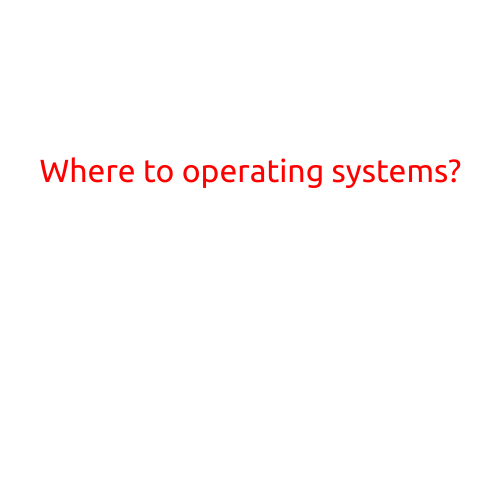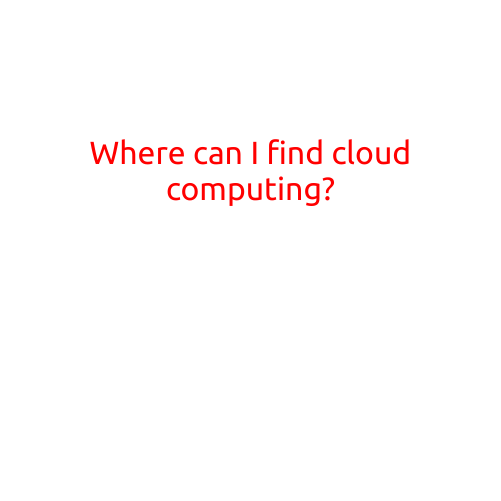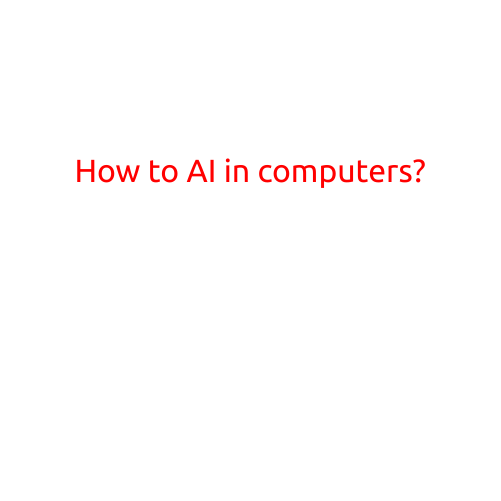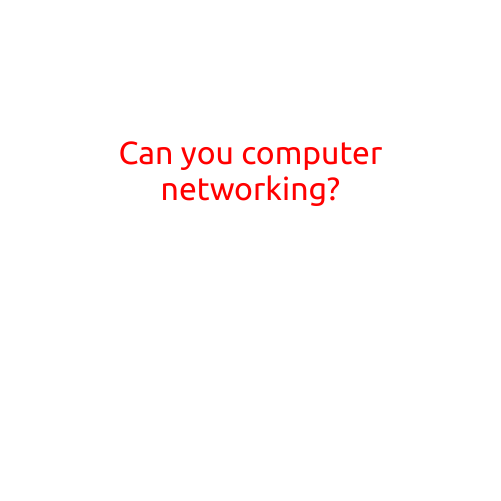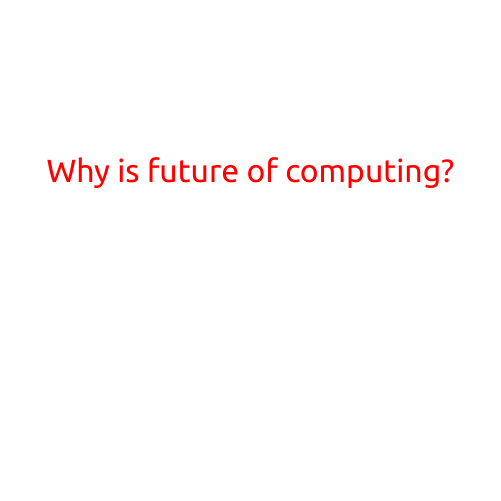
Why is the Future of Computing?
The future of computing is a topic that has been generating significant discussion and excitement in recent years. As technology continues to evolve at an unprecedented pace, it’s clear that the field of computing is poised to undergo significant transformations that will shape the way we live, work, and interact with each other.
Artificial Intelligence and Machine Learning
Artificial intelligence (AI) and machine learning (ML) are two technologies that are revolutionizing the way we approach computing. AI algorithms are able to learn and improve over time, allowing them to perform tasks that would previously have been considered the exclusive domain of humans. This includes tasks such as image recognition, natural language processing, and decision-making.
As AI and ML continue to advance, we can expect to see significant improvements in areas such as:
- Virtual assistants: AI-powered virtual assistants will become more sophisticated and integrated into our daily lives, allowing us to control our home devices, communicate with others, and access information more easily.
- Autonomous systems: AI will enable the development of autonomous systems, such as self-driving cars, drones, and robots, which will transform industries such as transportation and manufacturing.
- Healthcare: AI will improve healthcare by enabling the analysis of vast amounts of medical data, allowing for more accurate diagnoses and enabling the development of personalized treatments.
Cloud Computing and Edge Computing
Cloud computing has transformed the way we store and access data, allowing us to access vast amounts of computing power and storage from anywhere, at any time. As cloud computing continues to evolve, we can expect to see the emergence of edge computing, which will enable devices to process data in real-time, without the need for cloud-based processing.
Edge computing will be particularly important for applications such as:
- IoT: Edge computing will enable the efficient processing of data from IoT devices, allowing for real-time decision-making and improved security.
- Augmented reality: Edge computing will enable the seamless processing of AR data, allowing for more realistic and immersive experiences.
- 5G: Edge computing will be critical for the development of 5G networks, enabling the efficient processing of data and reducing latency.
Quantum Computing
Quantum computing is a new paradigm that is poised to revolutionize the way we approach complex problem-solving. By leveraging the principles of quantum mechanics, quantum computers will be able to process vast amounts of data exponentially faster than traditional computers.
Quantum computing will be particularly important for applications such as:
- Cryptography: Quantum computers will be able to break many traditional encryption methods, but they will also enable the development of unbreakable encryption methods.
- Materials science: Quantum computers will be able to simulate complex materials behaviors, enabling the development of new materials with unique properties.
- Climate modeling: Quantum computers will be able to process vast amounts of data, enabling more accurate climate models and improved weather forecasting.
Other Trends
In addition to AI, cloud computing, and quantum computing, there are several other trends that are shaping the future of computing. These include:
- Blockchain: Blockchain technology is poised to transform the way we approach data storage and security, enabling the creation of decentralized, trustless networks.
- Virtual and augmented reality: Virtual and augmented reality technologies are poised to transform the way we interact with each other and with digital data, enabling more immersive and engaging experiences.
- Internet of Bodies: The Internet of Bodies (IoB) refers to the network of devices that are embedded in our bodies, enabling real-time monitoring and control of our health.
Conclusion
The future of computing is a topic that is full of excitement and possibility. As technology continues to evolve at an unprecedented pace, it’s clear that the field of computing is poised to undergo significant transformations that will shape the way we live, work, and interact with each other. From AI and ML to cloud computing, edge computing, and quantum computing, there is no shortage of innovative technologies that are poised to change the way we approach computing.


